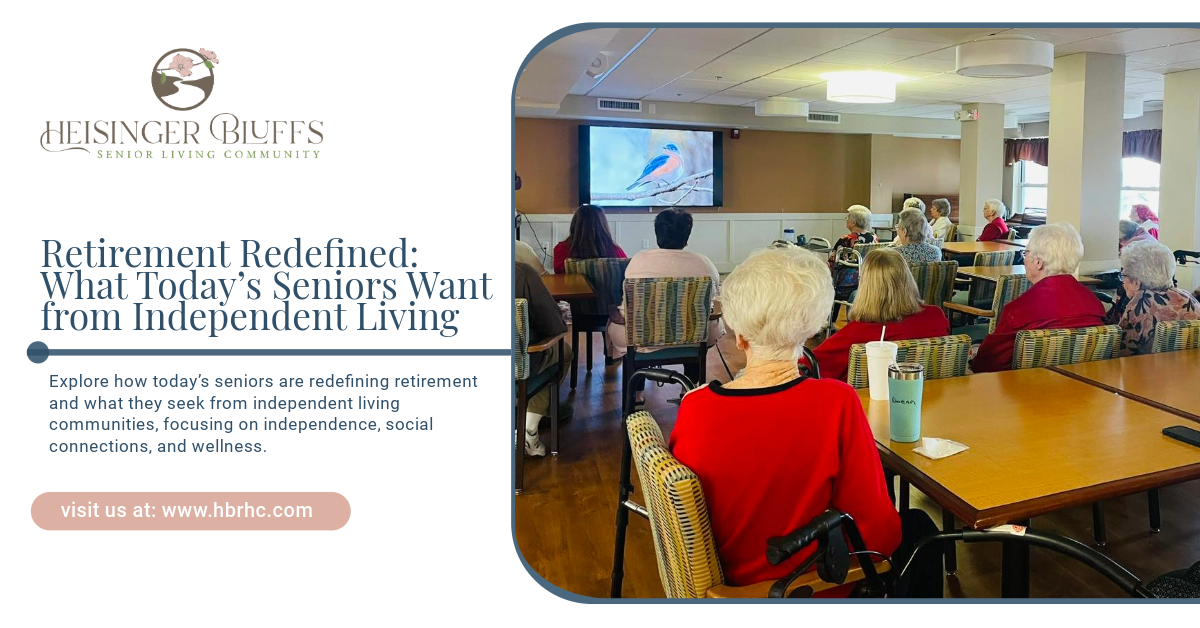Long-Term Care Planning in Jefferson City, MO: Your Key to a Stress-Free Future

Understanding Long-Term Care in Jefferson City, Missouri
Long-term care encompasses a variety of services designed to meet a person's health or personal care needs during a short or long period of time. These services help people live as independently and safely as possible when they can no longer perform everyday activities on their own.
What is Long-Term Care?
Long-term care refers to a range of services and assistance for individuals who, due to mental and/or physical limitations, rely on aid with daily living activities over an extended period. It encompasses support for routine personal tasks, known as activities of daily living (ADLs), such as bathing, dressing, eating, and mobility. Long-term care can also include medical care for those who need constant nursing attention.
Types of Long-Term Care Facilities
There are several types of long-term care facilities, each offering different levels of care and services tailored to the varying needs of individuals:
- Assisted Living Facilities: These settings provide 24-hour supervision and assistance with personal care needs, but not ongoing skilled nursing care. They are categorized into:
- Adult Care Homes: Serve seven or more adults.
- Family Care Homes: Serve between two to six adults.
- Multi-Unit Assisted Housing with Services: House adults who do not require round-the-clock supervision or assistance.
- Nursing Homes (Skilled Nursing Facilities): Offer comprehensive services including
room, board, personal care, and medical services. These facilities cater to individuals who require ongoing nursing care and may have specialized units for residents with dementia or Alzheimer’s disease.
- Continuing Care Retirement Communities (CCRCs): Provide a spectrum of care from independent living to nursing home care in one location. They often require an entry fee and subsequent monthly fees, which depend on an array of factors like type of residence and level of care needed.
- Home and Community-Based Services (HCBS): Enable individuals to receive care in their own homes, fostering independence and offering a cost-effective alternative to institutional care. Services can range from assistance with daily activities to medical care.
When considering long-term care options for yourself or a loved one in Jefferson City, Missouri, it's crucial to understand the different types of facilities available and the specific services they offer. Knowing the distinctions between these settings can aid in making informed decisions that align with personal care needs and preferences. To further explore the financial aspects of arranging for long-term care, such as the costs of long-term care and long-term care insurance, please refer to the respective sections of our comprehensive guide on long-term care planning.
Long-Term Care in Jefferson City
As caregivers and family members of the elderly in Jefferson City, Missouri, understanding the landscape of local long-term care options is crucial for effective planning. Jefferson City offers a variety of facilities to cater to the diverse needs of seniors, and each comes with its own cost considerations.
Local Facility Options
Jefferson City boasts an array of long-term care facilities designed to meet various levels of care requirements. These range from assisted living communities to skilled nursing homes, and specialized care units for conditions like Alzheimer’s and dementia. A comprehensive list of
long-term care options in the area can be accessed to help individuals and families make informed decisions.
| Facility Type | Number in Jefferson City |
|---|---|
| Assisted Living | X |
| Skilled Nursing Homes | X |
| Alzheimer's Care Units | X |
| Independent Living | X |
Each facility type provides a unique blend of services, amenities, and care levels, which should be carefully matched with the individual care needs of the senior. When assessing facilities, consider factors such as location, staff qualifications, and the availability of long-term care services that are pertinent to the senior's health and well-being.
Costs and Considerations
The cost of long-term care can be one of the most significant factors in the decision-making process. In 2020, the national median monthly rate for assisted living was $4,300, with regional variations. It's essential to consider these expenses in your long-term care planning.
| Care Type | Median Monthly Cost |
|---|---|
| Assisted Living | $4,300 |
| Skilled Nursing Home (semi-private room) | $7,756 |
| Skilled Nursing Home (private room) | $8,821 |
| Home Health Aide | $4,576 |
Source: Caring Places
Medicare typically does not cover the costs of long-term care, so planning for these expenses is a critical aspect of ensuring a stress-free future. Medicaid may help with costs, but eligibility is subject to strict income and asset limits. To address the financial aspects of care, consider exploring long-term care insurance and other funding sources like savings and investments.
The premiums for long-term care insurance can vary, so it is advisable to plan these costs well in advance. Speaking with a financial advisor or insurance specialist can guide you through the complexities of forecasting care expenses and selecting suitable insurance coverage.
When considering the costs of long-term care, it's also important to factor in the potential for increasing medical needs over time. This includes the price of medications, medical supplies, and any specialized care services that might be required. It's not only about finding a facility that meets the current needs but also one that can accommodate changing health conditions in the future.
By understanding the local facility options and associated costs in Jefferson City, caregivers and family members can embark on long-term care planning with confidence, ensuring that their loved ones receive the care they deserve in their later years.
Planning for Long-Term Care
When considering the future, planning for long-term care is a vital step to ensure a stress-free transition for seniors and their families. This planning ensures that personal, emotional, and financial needs are met, and that adequate care is accessible when required.
Financial Planning Basics
Financial planning for long-term care involves setting aside resources to cover future care expenses. It is important to start this planning early, as the cost of care can be significant and often increases with time. Planning should address not just financial aspects but also the emotional and physical aspects of care.
A critical part of financial planning is to assess current assets, income, and potential future needs. It involves discussions about where care should take place, whether at home, in a long-term care facility, or elsewhere, as well as how to pay for it.
Budgeting for long-term care should include a comprehensive look at all possible income sources, such as savings, investments, pensions, and any government benefits for which one may be eligible. Understanding the costs of long-term care is also essential to this process, as it helps identify the amount of money needed for different care scenarios.
Insurance and Long-Term Care
Long-term care insurance is a specific type of insurance product designed to cover the costs associated with long-term care services, helping to protect your assets and manage out-of-pocket expenses. These services assist you with personal care needs that may arise due to age, illness, or disability.
It's important to review the details of a long-term care insurance policy carefully, as premiums can be expensive and conditions for payout can vary. Factors to consider include the daily benefit amount, the benefit period, the waiting period before benefits begin, and what services are covered.
One should also consider the potential for government assistance through programs like Medicaid, which helps with medical costs for those with limited income and resources. It covers long-term care, but the eligibility criteria can vary by state.
Legal Documents for Future Care
Beyond financial considerations, long-term care planning should also include preparing the necessary legal documents. These documents ensure that an individual's wishes regarding their care and finances are respected even if they become unable to make those decisions themselves.
Key legal documents include:
- Living Will:
Outlines the types of medical care desired in the event of incapacitation.
- Durable Power of Attorney for Healthcare: Designates someone to make healthcare decisions on one's behalf.
- Durable Power of Attorney for Finances: Appoints a trusted individual to manage financial affairs.
- Will: Dictates the distribution of assets after death.
Having these documents in place provides peace of mind and a clear directive to caregivers and family members. It's recommended to consult with a legal professional who specializes in elder law to ensure all paperwork accurately reflects the wishes of the individual.
Long-term care planning is a multifaceted process that requires thoughtful consideration of various aspects of future care needs. By addressing financial strategies, insurance options, and legal preparation, individuals and families can pave the way for a secure and stress-free future. For more information on long-term care services and support, explore all available resources and assistance programs.
Long-Term Care for Specific Needs
As individuals age or face health challenges, they may require specialized care. Long-term care for specific needs, such as Alzheimer's and dementia or medical conditions requiring skilled nursing, is an essential consideration for families and caregivers.
Alzheimer's and Dementia Units
Alzheimer's and dementia units, often referred to as memory care units, are designed to meet the unique needs of residents with memory impairments. These units provide a secure environment to prevent wandering, a common issue with dementia patients, and offer specialized programming to support their cognitive abilities and manage behavioral symptoms.
The staffing in Alzheimer's and dementia units is typically trained in dementia care, understanding the best practices for communication and engagement with residents who have memory loss. The design of these units often includes cues and features to help residents navigate the space independently and maintain a sense of familiarity.
When considering a memory care unit, it's important to look at the staff-to-resident ratio, the availability of individualized care plans, and the types of activities and therapies offered. These factors contribute to the quality of care and the well-being of residents.
| Feature | Description |
|---|---|
| Secure Environment | Prevents wandering and ensures safety |
| Specialized Staffing | Trained in dementia care |
| Individualized Care Plans | Tailored to each resident's needs |
| Therapeutic Activities | Aimed at maintaining cognitive function |
For more information on long-term care services specialized for Alzheimer's and dementia, explore our long-term care options.
Skilled Nursing and Medical Services
Skilled nursing facilities, also known as nursing homes, provide comprehensive medical care and support to individuals who require ongoing nursing care. The range of services includes but is not limited to personal care, nursing services, dietary services, social services, and housekeeping. Additionally, skilled nursing facilities may offer rehabilitation therapy post-injury or hospital stay, with dedicated units for those with complex medical conditions.
These facilities are equipped to handle residents with extensive healthcare needs, offering 24-hour supervision by healthcare professionals. The services provided in these settings ensure that residents receive the medical attention and support they need, while also assisting with daily living activities.
When planning for long-term care that involves skilled nursing and medical services, it’s crucial to understand the costs associated with this level of care. These costs can vary widely depending on the location, type of facility, and the specific services required. To help manage these expenses, families should consider
long-term care insurance and look into other financial planning strategies.
| Service | Description |
|---|---|
| 24-hour Nursing Care | Continuous medical supervision |
| Rehabilitation Therapy | Physical, occupational, and speech therapy |
| Personal Care | Assistance with daily living activities |
| Specialized Care Units | For complex medical conditions |
For a detailed breakdown of the costs of long-term care including skilled nursing services, and to find resources to aid in decision-making, please visit our dedicated section on this topic.
Navigating the landscape of long-term care requires an understanding of the different types of care available, especially for those with specific needs. By considering the specialized care provided in Alzheimer's and dementia units and skilled nursing facilities, families and caregivers can make informed decisions that best suit the needs of their loved ones.
Navigating Long-Term Care Choices
When it comes to long-term care planning, one of the most critical steps is making informed decisions about the type of care needed and the appropriate facility. In Jefferson City, Missouri, caregivers and families have various options to consider.
Assessing Care Needs
Before selecting a long-term care facility, it's crucial to evaluate the level of care required. This assessment will guide the decision-making process and ensure that the chosen facility can meet the specific needs of your loved one. Factors to consider include the degree of assistance needed with daily activities, medical care requirements, and preferences for community living versus more private accommodations.
Types of care that may be considered include:
- Assisted living facilities for adults who require supervision or assistance with personal care but do not need ongoing skilled nursing care.
- Skilled nursing facilities (Nursing Homes) for individuals who require medical care provided by a skilled nursing professional.
- Continuing Care Retirement Communities (CCRCs) for a range of care levels in one location, allowing for transitions as care needs change.
- Home and Community Based Services (HCBS) for those who prefer to receive care in their own homes.
Long-term care planning should involve discussions about where care should take place, as well as how to pay for it, considering the various care options available.
Selecting the Right Facility
Once the care needs have been assessed, the next step is to choose the right long-term care facility. This choice should be based on the quality of care, cost, location, amenities, and the overall environment.
Here's a summary of the different types of facilities and what they offer:
| Facility Type | Care Level | Services Offered |
|---|---|---|
| Assisted Living | Moderate | 24-hour supervision, assistance with personal care |
| Skilled Nursing | High | Comprehensive medical and personal care, therapy services |
| CCRCs | Variable | Ranges from independent living to nursing care |
| HCBS | Custom | In-home care services tailored to individual needs |
Sources: ForLTC
It's essential to consider the costs of long-term care, which can vary significantly based on the type of care, facility, and location. In 2020, the national median monthly rate for assisted living was $4,300, highlighting the need for meticulous financial planning.
Medicare typically does not cover long-term care expenses, so exploring options such as long-term care insurance, Medicaid, savings, and investments is crucial. Consulting with a financial advisor or insurance specialist can help navigate the complexities of covering future care needs.
When evaluating facilities, consider scheduling tours to observe the environment, asking about staff qualifications, and reviewing state inspection reports. Inquire about the facility's ability to accommodate specific needs, such as Alzheimer's and dementia units or skilled nursing services, which are essential components of long-term care services.
Selecting the right facility is a significant decision, and it is important to take the time to research and consider all available long-term care options. By assessing care needs and exploring facilities with due diligence, caregivers and families can ensure that their loved ones receive the care and support they deserve.
Support for Caregivers and Families
For many, the role of a caregiver is a labor of love, but it also comes with its own unique challenges. Understanding the role of family in caregiving and being aware of available resources and assistance programs can help make the journey more manageable.
The Role of Family in Caregiving
Family members often find themselves at the forefront of providing care for their loved ones. This may involve assisting with daily activities, managing medications, and coordinating with healthcare professionals. According to Nurse Registry, family caregivers can experience significant physical, emotional, and financial stress, especially when they lack clarity on how to deliver the best care.
Long-term care planning is crucial as it encompasses not only the financial aspects but also the emotional and physical components of care. Discussions around the location of care, whether at home or in a
long-term care facility, and the financial aspects of such care are essential parts of the planning process.
| Caregiver Role | Activities |
|---|---|
| Daily Living Assistance | Bathing, dressing, eating |
| Health Care Coordination | Scheduling appointments, medication management |
| Emotional Support | Companionship, mental health check-ins |
Resources and Assistance Programs
Navigating the complexities of long-term care is a task no one should face alone. There are numerous resources and assistance programs designed to support caregivers and families:
- Long-Term Care Insurance:
Long-term care insurance can help cover the
costs of long-term care and alleviate financial burdens on the family.
- Legal Documents: Establishing a healthcare directive, also known as a living will or advance directive, is critical. This document outlines medical treatment preferences in case the individual is unable to communicate their decisions, as noted by
Get Smarter About Money.
- Financial and Legal Consultation: Consult with financial advisors, estate planning attorneys, or insurance specialists to navigate
long-term care services and financial planning. These professionals can assist in ensuring financial affairs are in order to cover future care needs, as recommended by
Caring Places.
- Support Groups and Counseling: Connect with support groups and seek counseling services to handle the emotional and mental strain of caregiving.
- Community Programs: Investigate community programs that offer respite care, day programs, or home health aide services to provide temporary relief for caregivers.
| Resource Type | Description |
|---|---|
| Insurance | Helps cover care costs |
| Legal Support | Advises on documents and rights |
| Financial Planning | Manages assets and future expenses |
| Emotional Support | Provides counseling and group discussions |
| Community Assistance | Offers practical caregiving support |
By taking advantage of these resources and having open discussions about long-term care planning, caregivers and families can reduce stress and ensure they are prepared for the future. It's important to remember that seeking support is a sign of strength, not a weakness, and can lead to better care for loved ones and improved well-being for caregivers.











